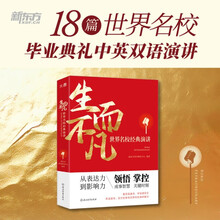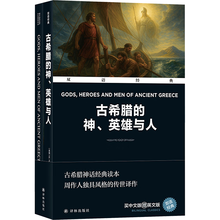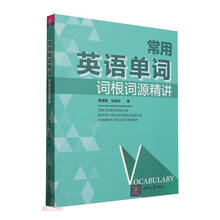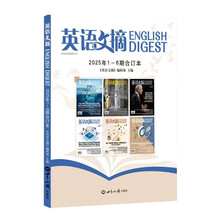1.艾玛和艾及哈德
Emma and Eginhard
一千多年前,有一个国王名叫查理曼。他重视知识,从国外聘请学者。在这些学者里,有个叫艾及哈德的年轻人,他才貌过人,又谦虚,因此国王很赏识他,留他在身边做秘书。他非常忠实于国王。
国王有个女儿,叫艾玛公主,甜美可爱,精通各种社交礼仪、插花刺绣等家庭劳作。
艾及哈德沉迷于公主的美丽,非常喜欢她。一次,艾及哈德路过花园,碰上公主,公主把花递给他,问:“艾及哈德,玫瑰代表什么?”他还个礼,大胆回答:“玫瑰代表青春,它是爱情的象征。”从此,爱情的种子在他们心中发了芽。以后无论寒来暑往,艾及哈德和艾玛秘密约会,恋恋不舍。
一天晚上,国王失眠了,他推开窗看到雪地里有一串脚印直奔向公主城堡,国王很奇怪,接着发现了月光下的艾及哈德——一个出身低微的人,在和公主秘密约会,国王大怒。
第二天,大臣们有的说应当流放、有的提出要处死艾及哈德。可国王说:“让我想想,他偷走了我的女儿,若我慷慨给他,她仍是我的宝贝女儿。”
于是,国王召回了他,说:“长久以来你一直忠诚于我,我要给你一份别人从来没得到过的奖赏。”门打开了,国王拉住从里面走出的公主,把手放在艾及哈德的手心里,说:“这是我给你最宝贵的礼物。”艾及哈德欢喜得发疯,并发誓要成为最有贡献的学者。
艾玛和艾及哈德
ORE than a thousand years ago there lived a famous Emperor. Many were his deeds of valour, and there have come down to us a wealth of stories and poems concerning his wondrous acts. But Charlemagne (or Charles the Great) was not only a mighty warrior; he cared for peace and strove to improve the condition of his people. He invited men of learning from other countries to his Court, and made them teachers in the schools which he founded in his capital-schools wherein the Kings own sons were taught side by side with children of the poor. The chief of these teachers was Alcuin, the most learned man of the age, who not only imparted his knowledge to his pupils but won their affection by his kindly nature.
Now amongst his scholars was a youth named Eginhard, who so far surpassed the others that what was hard work to them seemed but a game to him. He learned rapidly all the arts and sciences, and was moreover an accomplished poet and musician. So remarkable was the young students progress that it came to the knowledge of the Emperor,who resolved to take Eginhard into his service and train him for high office in the realm.
So Eginhard became his secretary and won much favour. Yet his modesty was great, and he lived as much as possible in quiet seclusion with his books.
"All men loved him for his modest grace,
And comeliness of figure and of face."
Eginhard kept always the favour of Charlemagne, and wrote the life of his great benefactor. He was much loved by the next King, Charlemagnes son, with whom he had been taught in Alcuins school, and died an old man full of honour.
A chronicler, many years after, tells this story of what befell Eginhard in the days of his youth. Whether this story be true or not we cannot tell, but it shows that people believed that beneath the warrior Kings coat of mail lay concealed all the tenderness and affection which a father can bestow.
The great Emperor had one fair daughter, the Princess Emma, and many were the reports throughout the realm of her exceeding loveliness and sweetness of disposition. Charlemagne had resolved that she should be trained in all womanly arts, as befitted a noble lady, and so he had sent her to a convent where the gentle nuns had taught her to do beautiful embroideries and all things pertaining to the care of a household. In those days the mistress of a home, even the Queen herself, did not disdain to instruct her maids in spinning and cookery and such-like domestic arts. The nuns, too, must have had a garden of herbs and flowers which they carefully tended, for when the Princess Emma returned to Court, above all other things she loved to wander in the Palace gardens and cull the wondrous variety of flowers that grew therein. Even the studious Eginhard, as he pored over his books heard whispers of the Princesss charms, and when she returned home in state attended by knights and courtiers, the young scholar gazed eagerly through his window for a first glimpse of the Princess. On that same day a banquet was given in her honour, and Eginhard, looking from his lowly seat, was lost in wonder at her beauty. He slept but to dream of the Princess, and when next morning he rose betimes and wandered, with a learned book in his hand, through the Palace gardens, once more he saw her as she gathered sprays of roses, while a demure maid of honour followed in close attendance. Graciously the noble lady held out her flowers to the youth, saying,"Tell me, Eginhard, the mystery and the meaning of the rose." With courtly salute but trembling at his daring reply, he answered, "The roses mystery is love and its meaning youth." From that day onward love for the Princess filled his heart, and in secret she returned his love. Throughout the summer Eginhard gave lessons to the fair lady in garden lore, and when summer passed away and autumn followed in its train there were many hurried meetings in the park at dusk. But at last came the short winter days when the Princess could not escape from the precincts of the Court, and all that her faithful lover could do was to watch, night after night, the light that burned in Princess Emmas tower. At last it seemed to him that if only he could watch beneath his ladys window he would be nearer to her, and she, perchance, would see him even if she could not speak. So one night, though the ground was thick with snow, when all the Court was wrapped in slumber, he stole from his chamber and hastened across the courtyard to the foot of the Princesss ivycovered tower. Drawn by love the Princess opened her window and murmured a greeting to her faithful knight. Long he lingered there, and reluctantly at last they parted. Now, as it chanced, the Emperor, who often when oppressed with cares of State was wont to pass a sleepless night, looked from his window and saw in the snow a line of footprints towards the Princesss tower. Even as he gazed he beheld a cloaked figure returning through the snow, and the moon, shining brightly, revealed the face and form of his young favourite, Eginhard the scholar. Surprise and anger surged up in his heart-astonishment that the dreamy student had been moved by the power of love, anger that one so lowly-born should have dared to aspire to the hand of his fair daughter. Through the long night Charlemagne stood as if turned to stone, and Eginhard, who came as usual in the morn to hear what work was appointed for him that day, was met by a courteous dismissal and the command to return within an hour. Then the Emperor straightway summoned his Council and laid the matter before them. "What shall be done," said he," to this clerk who aspires to the hand of a Royal Princess?“ Some answered that he should be banished, and some of harsher mind urged that he was worthy of death. But the Monarch said: “Your sentence is not mine; let us be merciful as well as just. Eginhard has stolen from me a most precious gem, but if I give it to him freely, by so doing I shall once more make it mine.“
Then Eginhard was summoned to the Royal presence and Charlemagne thus spake: “My son, for indeed a son you have ever been to me, I have been unmindful of your long and faithful service, and have suffered you too long to go without reward. But now I will bestow on you a gift so precious that Kings have besought me for it in vain.“
Then the great doors were flung open and Princess Emma entered in all the pride of her youthful beauty. Taking her white hand the Emperor placed it in Eginhards, saying, “This is the precious gift which shall pay the royal debt I owe.“ Eginhard, overcome with rapture, could only kneel before his Sovereign murmuring his grateful thanks, and vow that Charlemagne should find no man within his mighty realm more faithful and devoted than Eginhard the scholar.
The Fairy Tale from World Famous Legend ——Autumn
Emma And Eginhard
展开










